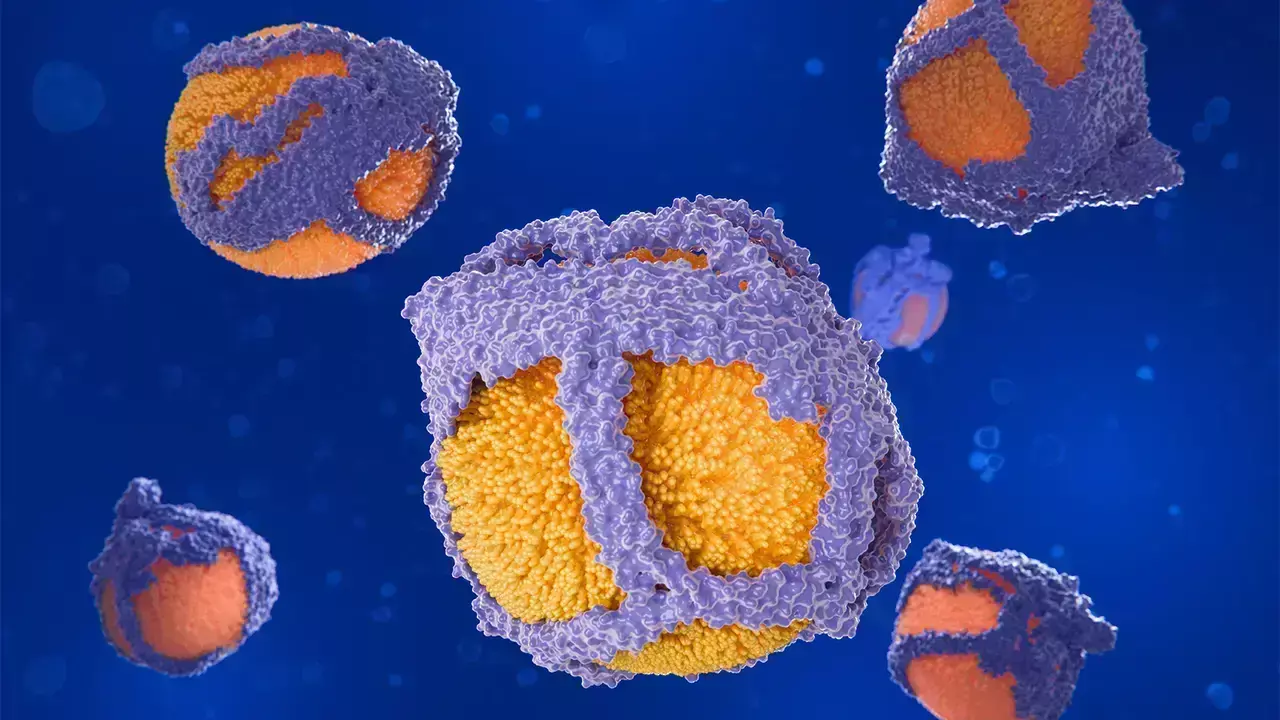- Home
- Medical news & Guidelines
- Anesthesiology
- Cardiology and CTVS
- Critical Care
- Dentistry
- Dermatology
- Diabetes and Endocrinology
- ENT
- Gastroenterology
- Medicine
- Nephrology
- Neurology
- Obstretics-Gynaecology
- Oncology
- Ophthalmology
- Orthopaedics
- Pediatrics-Neonatology
- Psychiatry
- Pulmonology
- Radiology
- Surgery
- Urology
- Laboratory Medicine
- Diet
- Nursing
- Paramedical
- Physiotherapy
- Health news
- Fact Check
- Bone Health Fact Check
- Brain Health Fact Check
- Cancer Related Fact Check
- Child Care Fact Check
- Dental and oral health fact check
- Diabetes and metabolic health fact check
- Diet and Nutrition Fact Check
- Eye and ENT Care Fact Check
- Fitness fact check
- Gut health fact check
- Heart health fact check
- Kidney health fact check
- Medical education fact check
- Men's health fact check
- Respiratory fact check
- Skin and hair care fact check
- Vaccine and Immunization fact check
- Women's health fact check
- AYUSH
- State News
- Andaman and Nicobar Islands
- Andhra Pradesh
- Arunachal Pradesh
- Assam
- Bihar
- Chandigarh
- Chattisgarh
- Dadra and Nagar Haveli
- Daman and Diu
- Delhi
- Goa
- Gujarat
- Haryana
- Himachal Pradesh
- Jammu & Kashmir
- Jharkhand
- Karnataka
- Kerala
- Ladakh
- Lakshadweep
- Madhya Pradesh
- Maharashtra
- Manipur
- Meghalaya
- Mizoram
- Nagaland
- Odisha
- Puducherry
- Punjab
- Rajasthan
- Sikkim
- Tamil Nadu
- Telangana
- Tripura
- Uttar Pradesh
- Uttrakhand
- West Bengal
- Medical Education
- Industry
Obicetrapib excels as lipid lowering agent in Phase 3 trials

Obicetrapib, a highly selective oral CETP inhibitor, has shown significant promise in a Phase III trial by dramatically reducing LDL cholesterol levels in high-risk individuals who had an inadequate response to existing lipid-lowering therapies, all without noticeable side effects. These findings support its potential as an effective treatment for patients already on maximal lipid-lowering therapy. Additionally, a cardiovascular outcomes trial is currently underway to evaluate its long-term impact in adults with a history of atherosclerotic cardiovascular disease and persistently high LDL cholesterol.
Obicetrapib is a highly selective cholesteryl ester transfer protein inhibitor that reduces low-density lipoprotein (LDL) cholesterol levels. The efficacy and safety of obicetrapib have not been fully characterized among patients at high risk for cardiovascular events.
They conducted a multinational, randomized, placebo-controlled trial involving patients with heterozygous familial hypercholesterolemia or a history of atherosclerotic cardiovascular disease who were receiving maximum tolerated doses of lipid-lowering therapy. Patients with an LDL cholesterol level of 100 mg per deciliter or higher or a non–high-density lipoprotein (HDL) cholesterol level of 130 mg per deciliter or higher, as well as those with an LDL cholesterol level of 55 to 100 mg per deciliter or a non-HDL cholesterol level of 85 to 130 mg per deciliter and at least one additional cardiovascular risk factor, were eligible for inclusion.
The patients were randomly assigned in a 2:1 ratio to receive either 10 mg of obicetrapib once daily or matching placebo for 365 days. The primary end point was the percent change in the LDL cholesterol level from baseline to day 84. Results: A total of 2530 patients underwent randomization; 1686 patients were assigned to receive obicetrapib and 844 to receive placebo. The mean age of the patients was 65 years, 34% were women, and the mean baseline LDL cholesterol level was 98 mg per deciliter.
The least-squares mean percent change from baseline to day 84 in the LDL cholesterol level was −29.9% (95% confidence interval [CI], −32.1 to −27.8) in the obicetrapib group, as compared with 2.7% (95% CI, −0.4 to 5.8) in the placebo group, for a between-group difference of −32.6 percentage points (95% CI, −35.8 to −29.5; P<0.001). The incidence of adverse events appeared to be similar in the two groups. Among patients with atherosclerotic cardiovascular disease or heterozygous familial hypercholesterolemia who were receiving maximum tolerated doses of lipid-lowering therapy and were at high risk for cardiovascular events, obicetrapib reduced LDL cholesterol levels by 29.9%.
Reference:
Safety and Efficacy of Obicetrapib in Patients at High Cardiovascular Risk
Authors: Stephen J. Nicholls, M.B., B.S., Ph.D., Adam J. Nelson, M.B., B.S., Ph.D., Marc Ditmarsch, M.D., John J.P. Kastelein, M.D., Ph.D., Christie M. Ballantyne, M.D., Kausik K. Ray, M.D., Ann Marie Navar, M.D., et al. DOI: 10.1056/NEJMoa2415820. The New England Journal of Medicine.
Dr. Shravani Dali has completed her BDS from Pravara institute of medical sciences, loni. Following which she extensively worked in the healthcare sector for 2+ years. She has been actively involved in writing blogs in field of health and wellness. Currently she is pursuing her Masters of public health-health administration from Tata institute of social sciences. She can be contacted at editorial@medicaldialogues.in.
Dr Kamal Kant Kohli-MBBS, DTCD- a chest specialist with more than 30 years of practice and a flair for writing clinical articles, Dr Kamal Kant Kohli joined Medical Dialogues as a Chief Editor of Medical News. Besides writing articles, as an editor, he proofreads and verifies all the medical content published on Medical Dialogues including those coming from journals, studies,medical conferences,guidelines etc. Email: drkohli@medicaldialogues.in. Contact no. 011-43720751


